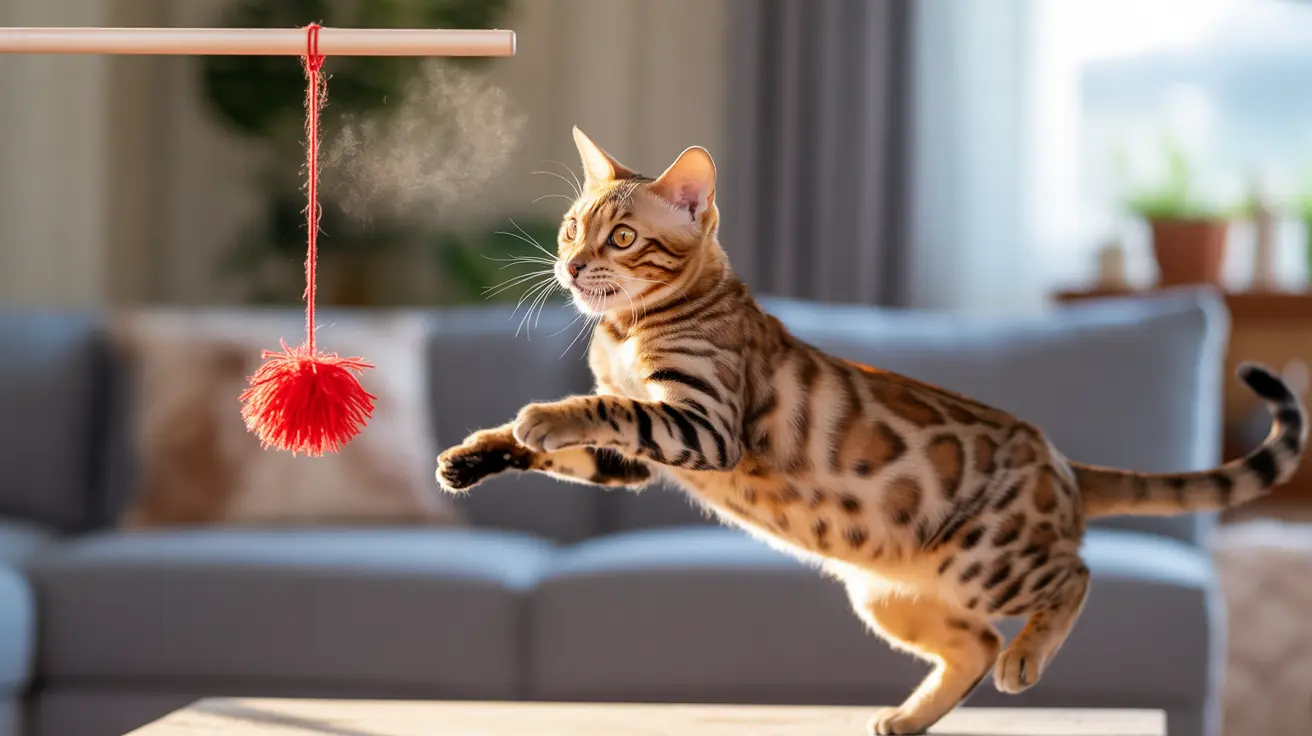Cats are fascinating creatures known for their playful nature, but many pet owners wonder "are cats playful" throughout their lives? The answer is a resounding yes - most cats maintain their playful spirit well into adulthood, though the intensity and style of play may change over time.
From energetic kittens to mature adults, cats engage in play as both a natural instinct and a way to maintain physical and mental wellbeing. Understanding feline play behavior is crucial for providing the enrichment your cat needs to thrive.
The Science Behind Cat Play Behavior
Cat play is deeply rooted in hunting instincts, serving as a way for cats to practice vital survival skills. When your cat stalks a toy mouse or pounces on a dangling string, they're actually rehearsing the same movements used to catch prey in the wild.
Research shows that play behavior peaks during dawn and dusk, matching cats' natural hunting patterns. This instinctive timing makes these hours ideal for interactive play sessions with your feline friend.
Different Types of Cat Play
Solo Play Activities
Cats often engage in independent play, batting around toys, chasing their tails, or conducting "gravity experiments" by knocking objects off surfaces. These solitary activities help satisfy their natural curiosity and need for mental stimulation.
Interactive Play
Social play, whether with humans or other cats, strengthens bonds and provides crucial exercise. Interactive toys like wand toys, laser pointers, and puzzle feeders can create engaging play experiences that keep your cat mentally and physically active.
Benefits of Regular Play for Cats
Regular play sessions offer numerous advantages for your feline companion:
- Maintains healthy weight and muscle tone
- Reduces stress and anxiety
- Prevents behavioral issues
- Strengthens the human-cat bond
- Provides necessary mental stimulation
Factors Affecting Cat Playfulness
Age and Energy Levels
While kittens are naturally more energetic, adult cats continue to enjoy play throughout their lives. Senior cats may play less frequently but still benefit from gentle play sessions tailored to their energy levels.
Breed Differences
Some breeds, like Bengals and Abyssinians, are known for their high energy and playfulness, while others, such as Persians, typically display more laid-back personalities. Understanding your cat's breed characteristics can help you provide appropriate play opportunities.
Creating an Enriching Play Environment
To encourage healthy play behavior, consider these elements:
- Vertical spaces like cat trees and wall shelves
- Rotating selection of toys to maintain interest
- Dedicated play areas with scratching posts
- Safe hiding spots for "hunting" games
- Interactive puzzle feeders
Frequently Asked Questions
Why are cats so playful, and how does it relate to their natural hunting instincts?
Cats are playful because play behavior mimics hunting activities essential for survival in the wild. When cats play, they're practicing stalking, pouncing, and catching skills that would naturally be used for hunting prey.
How can I encourage my cat to play if they seem bored or less active?
Try introducing new toys, varying play times, and using interactive toys that mimic prey movement. Schedule regular play sessions during dawn and dusk when cats are naturally more active, and experiment with different types of toys to find what excites your cat.
Are there specific toys or activities that can keep older cats engaged in play?
Senior cats often enjoy gentler toys like soft balls, crinkle toys, or slow-moving wand toys. Food puzzle toys can also provide mental stimulation while accommodating their energy levels.
What are the signs that my cat is playing rather than fighting with another cat?
During play, cats take turns chasing each other, maintain relaxed body language, and keep their claws mostly retracted. Fighting involves aggressive vocalizations, flattened ears, and more intense physical contact.
How often should I play with my cat to support their mental and physical health?
Aim for at least two 10-15 minute play sessions daily, adjusting the duration and intensity based on your cat's age and energy level. Consistent daily play helps maintain physical health and prevents behavioral issues.
Conclusion
Understanding and encouraging your cat's playful nature is essential for their wellbeing. By providing appropriate play opportunities and understanding the factors that influence feline play behavior, you can help ensure your cat leads a happy, healthy, and enriched life.






